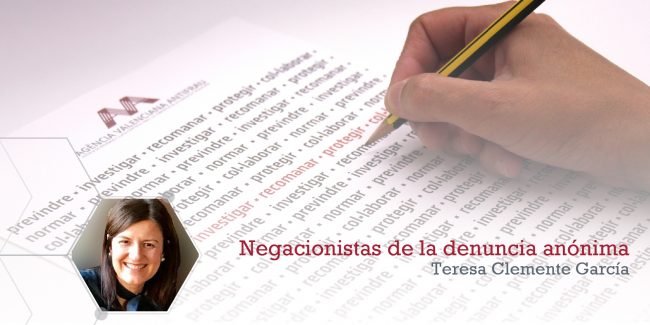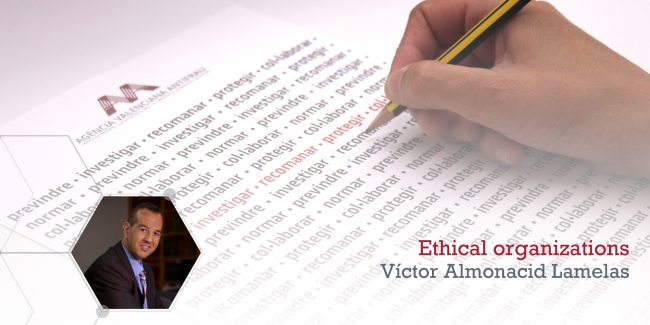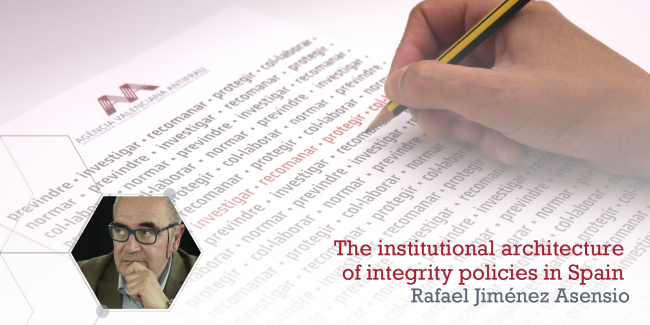Anonymous Reporting Deniers
For the deniers of anonymous reporting, it does not matter what is reported, however serious it may be. It matters who denounces, because knowing who the complainant has been, the facts are covered. They want to know who is reporting because in this way the complainant is pressured, discredited and re-apprehended, or accused of falsehood. The message is: find a lawyer to defend you, you will find out. This is what we comment on too many occasions in the Valencian Anti-Fraud Agency. The whistleblower is denounced for breaking the law of silence, for safeguarding the interest of all, for defending ourselves against fraud, irregularities and corruption. The deniers reject the anonymous complaint, although it is provided for in the special legislation and is applied by the jurisprudence that expresses the evolution in the application of the laws adapting the right to the demands and social realities. The Tributaria Agency and the Labour and Social Security Inspectorate, to give two examples, recognize anonymous reporting in Spain, as this is, for obvious reasons, very useful. The tax law does not specify who can file a tax complaint with the Administration, so the complaint can be anonymous; that is, the complainant may not disclose his or her identity. The fact that the identity of the complainant is not recorded does not represent any obstacle to taking into account the complaint and examining the documentation provided and, if appropriate, initiating the corresponding verification and investigation actions by the competent authorities. The Labor and Social Security Inspectorate has a complaints box, to which to go to notify all behaviors that imply job insecurity in employment and to inform any unfair situation that a worker may suffer, offering the possibility of communicating from anonymity the situations of labor abuse and non-compliance. The National Commission on Markets and Competition (CNMC) also has its own complaints box, which allows anonymity, in order to detect and, where appropriate, prosecute and sanction infringements of competition law. With regard to the prevention of money laundering, the obliged subjects (financial and credit institutions, insurers, investment services and reciprocal guarantee companies, among others) must establish an internal complaints channel so that employees, agents or managers can communicate, even anonymously, any relevant information about possible infringements. in this field. Since 2015, the Ministry of the Interior itself has set up an anonymous complaints box for terrorism cases. Similarly, in terms of data protection, anonymous complaints are allowed, which contributes to better protection of whistleblowers and facilitates the reporting of more cases. This is a good opportunity for companies to address their problems internally before they move abroad. For its part, the Criminal Chamber of the Supreme Court, in an important judgment whose rapporteur was Judge Vicente Magro, Judgment No. 35/2020 of February 6, 2020, validates an anonymous complaint as the origin of an internal investigation in a company to uncover a fraud, referring to Directive (EU) 2019/1937 and the channels of complaint, to which it qualifies as highly effective in the start of the notitia criminis, because they promote- says the sentence, the due police investigation and the discovery of illicit or criminal practices. It adds that an anonymous complaint does not preclude a criminal investigation, but requires only a reinforced analysis for its taking into account, which weighs the coherence and plausibility of the data. This Judgment includes a doctrine that is a continuation of others, also issued by the Criminal Chamber of the Supreme Court, such as Judgment No. 54/2019 of February 6, 2019 and Judgment No. 318/2013 of 11 April. Directive (EU) 2019/1937 of the European Parliament and of the Council of 23 October 2019 on the protection of persons reporting breaches of Union law, commonly referred to as the Whistleblower Directive, warns, in its first lines, that persons working for or in contact with a public or private organisation in the context of their work activities, they are often the first to be aware of threats or harm to the public interest that arise in that context. When reporting breaches, such persons act as whistleblowers and therefore play a key role in uncovering and preventing irregularities and protecting the well-being of society. However, potential whistleblowers often give up reporting their concerns or suspicions for fear of retaliation. In this environment, there is a growing need to recognize the importance of providing effective protection to whistleblowers. This Directive entered into force in Spain on December 17, 2019 and its deadline for transposition into Spanish law expired on December 17, 2021, with the European Commission reprimanding Spain for that reason. Both the aforementioned Directive and the United Nations Convention against Corruption, both directly applicable throughout Spain, that since December 17, 2021 and this since its ratification by the Congress of Deputies according to publication in the BOE of July 19, 2006, make anonymous reporting possible. In development of this United Nations Convention and in anticipation of the aforementioned Directive, the Valencian Anti-Fraud Agency is created by law approved in the Valencian Parliament on November 28, 2016, as an independent public institution with functions of prevention and promotion of integrity and public ethics, investigation of complaints, protection of whistleblowers and sanctioning capacity. The Anti-Fraud Agency, in accordance with its regulatory law and its implementing regulations, which is available in the Code for the Fight against Fraud and Corruption that publishes and periodically updates the BOE, admits complaints and communications made by any person, both nominal and anonymous, in the latter case with full guarantees through the electronic complaints mailbox of its website. This complaints channel also operates as a virtual office for public employees who inform the Agency of irregularities that it is aware of or to which it has had access. It is a secure and confidential telematic channel, which allows intercommunication, because for each communication that is made, an alphanumeric code is automatically assigned through which the complainant, anonymous or not, can access the system and interact with the official staff of the Agency, which also has the status of…




